第12章 VII(1)
When my acquaintance with Longfellow began he had written the things that made his fame, and that it will probably rest upon: "Evangeline,"
"Hiawatha," and the "Courtship of Miles Standish" were by that time old stories. But during the eighteen years that I knew him he produced the best of his minor poems, the greatest of his sonnets, the sweetest of his lyrics. His art ripened to the last, it grew richer and finer, and it never knew decay. He rarely read anything of his own aloud, but in three or four cases he read to me poems he had just finished, as if to give himself the pleasure of hearing them with the sympathetic sense of another. The hexameter piece, "Elizabeth," in the third part of "Tales of a Wayside Inn," was one of these, and he liked my liking its rhythmical form, which I believed one of the measures best adapted to the English speech, and which he had used himself with so much pleasure and success.
About this time he was greatly interested in the slight experiments I was beginning to make in dramatic form, and he said that if he were himself a young man he should write altogether for the stage; he thought the drama had a greater future with us. He was pleased when a popular singer wished to produce his "Masque of Pandora," with music, and he was patient when it failed of the effect hoped for it as an opera. When the late Lawrence Barrett, in the enthusiasm which was one of the fine traits of his generous character, had taken my play of "A Counterfeit Presentment," and came to the Boston Museum with it, Longfellow could not apparently have been more zealous for its popular acceptance if it had been his own work. He invited himself to one of the rehearsals with me, and he sat with me on the stage through the four acts with a fortitude which I still wonder at, and with the keenest zest for all the details of the performance. No finer testimony to the love and honor which all kinds of people had for him could have been given than that shown by the actors and employees of the theatre, high and low. They thronged the scenery, those who were not upon the stage, and at the edge of every wing were faces peering round at the poet, who sat unconscious of their adoration, intent upon the play. He was intercepted at every step in going out, and made to put his name to the photographs of himself which his worshippers produced from their persons.
He came to the first night of the piece, and when it seemed to be finding favor with the public, he leaned forward out of his line to nod and smile at the author; when they, had the author up, it was the sweetest flattery of the applause which abused his fondness that Longfellow clapped first and loudest.
Where once he had given his kindness he could not again withhold it, and he was anxious no fact should be interpreted as withdrawal. When the Emperor Dom Pedro of Brazil, who was so great a lover of Longfellow, came to Boston, he asked himself out to dine with the poet, who had expected to offer him some such hospitality. Soon after, Longfellow met me, and as if eager to forestall a possible feeling in me, said, "I wanted to ask you to dinner with the Emperor, but he not only sent word he was coming, he named his fellow-guests!" I answered that though I should probably never come so near dining with an emperor again, I prized his wish to ask me much more than the chance I had missed; and with this my great and good friend seemed a little consoled. I believe that I do not speak too confidently of our relation. He was truly the friend of all men, but I had certainly the advantage of my propinquity.